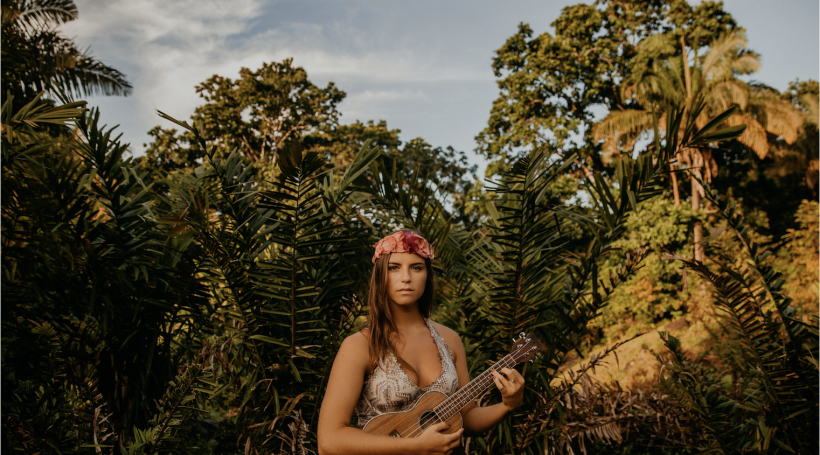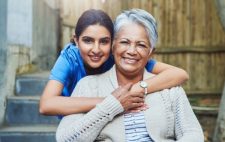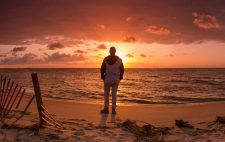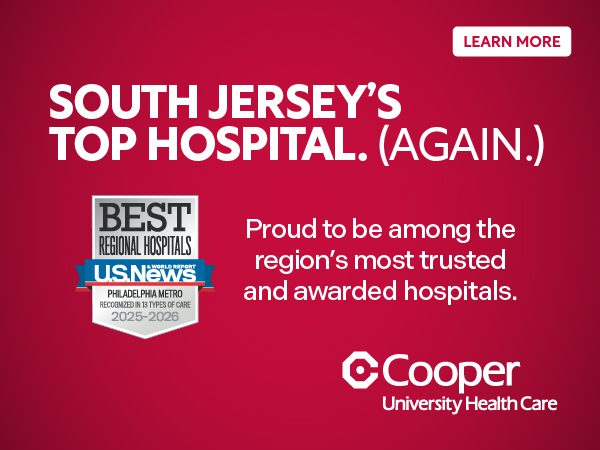Photo: Leygh Allison

Photo: Leygh Allison
If there is such a thing as a “typical quarantine story,” this isn’t it.
It was 1 am, and Jessanya Pritikin was sitting on the side of the road outside a police checkpoint in the heart of Panama. Many in the group around her, a collection of people from around the world, were sleeping on the ground. They had been there for 12 hours, after local authorities dragged them off their bus and confiscated their passports. The group was heading to the airport from Tribal Gathering, a festival in Panama’s Playa Chiquita where Westerners learn to live in harmony with nature.
It was mid-March, and the global pandemic meant no one would be leaving, at least right now. What was supposed to be a temporary paradise would become known as “the last festival on Earth.”
“I had no idea what was happening,” says Pritikin, 24, a New Egypt native, who later that night snuck back into the festival.
A year before, Pritikin had quit her job at an event planning agency and set off to travel the world. When she arrived at Tribal Gathering on February 29, she had no idea what Coronavirus was.
“When news of the virus came out, I didn’t know what anyone was talking about, and honestly, I didn’t want to know,” she says. “I was on Playa Chiquita, dancing and laughing, and everything was paradise.”
Up until that point, the festival was an oasis, she says. She worked in the front reception hut in the mornings in exchange for food credits. She spent the afternoons laying under palm trees on the beach and wandering about the festival grounds without a schedule or a plan. She partied all night. During the first week, Indigenous tribes held workshops on tribal clothing, drum circles and plant medicine. The second week was an electronic music
festival.
“Everyone was riding the same wave,” she says. “We all just wanted to connect, be friends and learn from each other.”
But on March 12, the pandemic sent the festival into lockdown. In a space where native tribes had performed healing ceremonies, Panamanian soldiers were now patrolling the grounds, checking temperatures and passports. (No one tested positive for the virus.)
“We didn’t know what was going on,” says Pritikin. “In one moment, they’d say no one could leave, then we could leave if we had been at the site for 14 days, then we couldn’t. They’d send out a busload of people to catch flights, and they’d all be turned back around.”
The gathering broke into two factions – those who felt scared and trapped, and others, like Pritikin, who were happy to find themselves in a never-ending festival.
Pritikin, whose phone accidentally switched to Spanish so she couldn’t read the news if she wanted to, was fine being in the dark. This isn’t to say she wasn’t scared – she spent a lot of time on the phone with her parents back in South Jersey and the U.S. Embassy, even booking a flight to Miami. But when it came time to board, something didn’t feel right.
“I texted my dad that I couldn’t come home,” she says. “Thousands of people were dying in the U.S., and there were barely any cases in Panama. It felt more dangerous to come home.”
“My dad wrote back and said, ‘If you come home, you’ll be around your family in a familiar place facing something predictable. For most people, that would be comforting, but most people aren’t you.”’
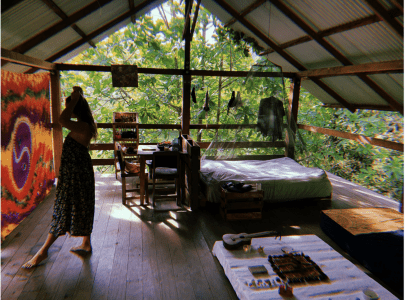 She stayed behind, and on March 20 – 5 days after the festival was supposed to end – she made her way to Kalu Yala, an ecovillage nestled deep in the Panamanian rainforest. She’s been there ever since.
She stayed behind, and on March 20 – 5 days after the festival was supposed to end – she made her way to Kalu Yala, an ecovillage nestled deep in the Panamanian rainforest. She’s been there ever since.
“It’s an amazing community of people doing inner work,” she says. “Everyone has something to add – there are yoga teachers, artists, photographers – and we all work together to contribute.”
She spends her days doing yoga on the beach, hiking to waterfalls and eating plant-based meals (with the occasional barbeque). She wakes with the sunrise, goes to bed when the sun goes down and lives in a treehouse with a boy she met.
Her dad, Andy Pritikin, owns Liberty Lake Day Camp in Bordentown, and she says her summers as a camper and counselor taught her the value of living and working with others. It is the reason, she says, that she feels at home in her new community.
And in the calm of her new normal, she’s finally starting to grasp the gravity of the pandemic.
“When things settled down, I was really able to understand,” she says. “I keep thinking of my grandparents and my brother, who had cancer and is at high risk. I grew up in a house where I always had to be aware of how my actions can affect someone else’s health.”
But for now, the comfort of her small, close-knit community (which, after a round of testing, remains Covid-free) and her sense of adventure outweigh those concerns.
“It’s a crazy situation to be in,” she says. “But if I’m going to be quarantined, I might as well be in paradise.”


